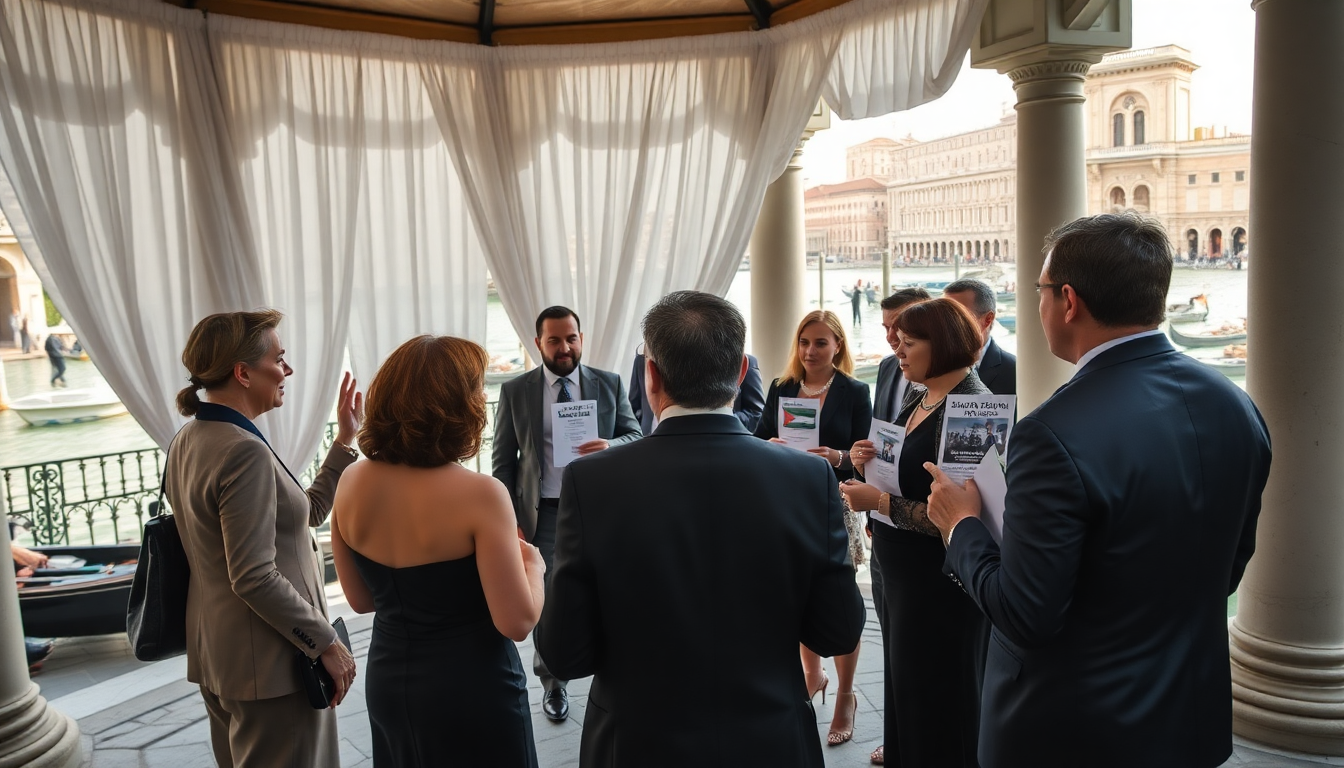Table of Contents
A collective of prominent Italian filmmakers has made a powerful appeal for the Venice Film Festival to take a more assertive pro-Palestinian stance in light of the ongoing humanitarian crisis in Gaza and Palestine. This initiative, known as V4P (Venice4Palestine), has garnered support from influential figures in the film industry, including acclaimed directors Marco Bellocchio, Matteo Garrone, and Alice Rohrwacher. In an open letter directed to the festival’s organizing bodies, they urge a courageous condemnation of what they describe as ongoing genocide and ethnic cleansing perpetrated by the Israeli government.
A Strong Call to Action
The letter kicks off with a haunting declaration: “Stop the clocks, turn off the stars.” This striking phrase captures a sense of urgency and despair, mirroring the overwhelming emotional toll of witnessing the violence in Palestine. The filmmakers articulate their disbelief and helplessness as they document the relentless suffering endured by the people of Gaza and the West Bank. They stress that the atrocities occurring are irrefutable and call for a collective awakening to the reality being portrayed through media and firsthand accounts from the region. Isn’t it time we all pay attention?
Among the international signatories of this open letter are renowned filmmakers like Abel Ferrara and Ken Loach, as well as Audrey Diwan, who recently won the Golden Lion at the Venice Film Festival for her film “The Happening.” The Palestinian directorial duo Arab Nasser and Tarzan Nasser, celebrated for their work “Once Upon a Time in Gaza” at Cannes this year, have also joined this plea, symbolizing global solidarity with the Palestinian cause.
The Biennale’s Response
The Biennale, which oversees the festival, promptly responded to the filmmakers’ demands, reaffirming its commitment to open dialogue and sensitivity towards pressing societal issues. In their statement, they highlighted the festival’s history of tackling significant themes through cinema. They also pointed out that this year’s lineup includes powerful narratives, such as “The Voice of Hind Rajab,” which portrays the tragic circumstances surrounding a Palestinian girl’s death due to military actions. But is this enough?
This response illustrates the Biennale’s intention to remain a platform for discussion, yet the filmmakers argue that more decisive action is necessary to align with the gravity of the situation in Palestine. They express a desire for the festival not only to showcase relevant films but also to take a definitive stance in solidarity with those affected by the conflict. How can we expect change without a clear voice?
A Festival at the Crossroads
As the Venice Film Festival gears up for its next edition, it finds itself at a pivotal moment. The filmmakers’ appeal has sparked renewed discussions about the role of art and culture in addressing global humanitarian issues. Historically, the festival has been a space for artistic expression and social commentary, but now it faces a call to lead by example in advocating for justice and human rights.
The tension between artistic freedom and political responsibility presents a complex challenge for festival organizers. With the eyes of the world upon them, the Venice Film Festival has a unique opportunity to engage meaningfully in the dialogue surrounding the humanitarian crisis in Gaza and Palestine. How they respond to this call for action could set a precedent for future festivals and cultural events, showcasing cinema’s immense potential as a tool for advocacy and awareness. Are we ready to see art take a stand?


